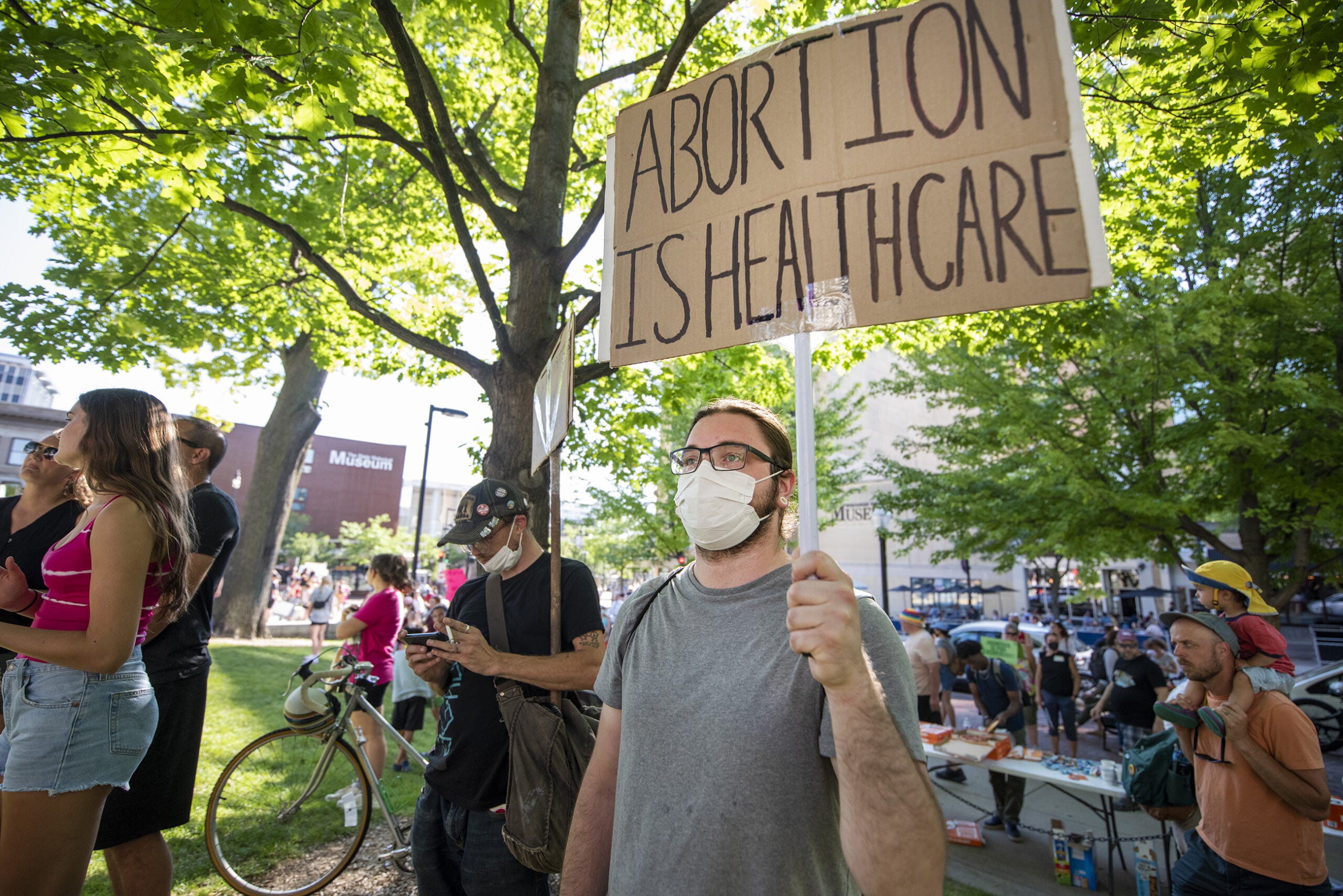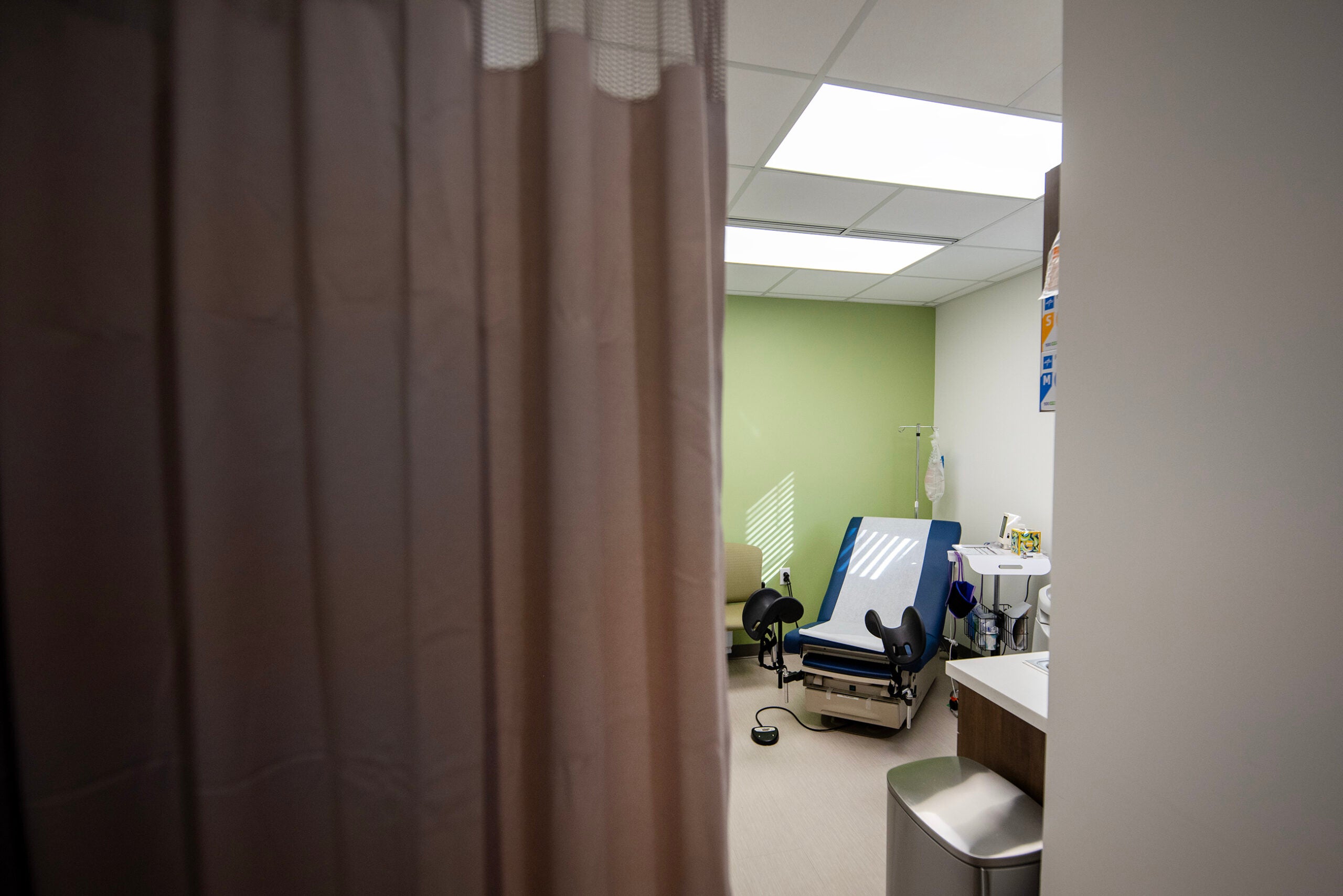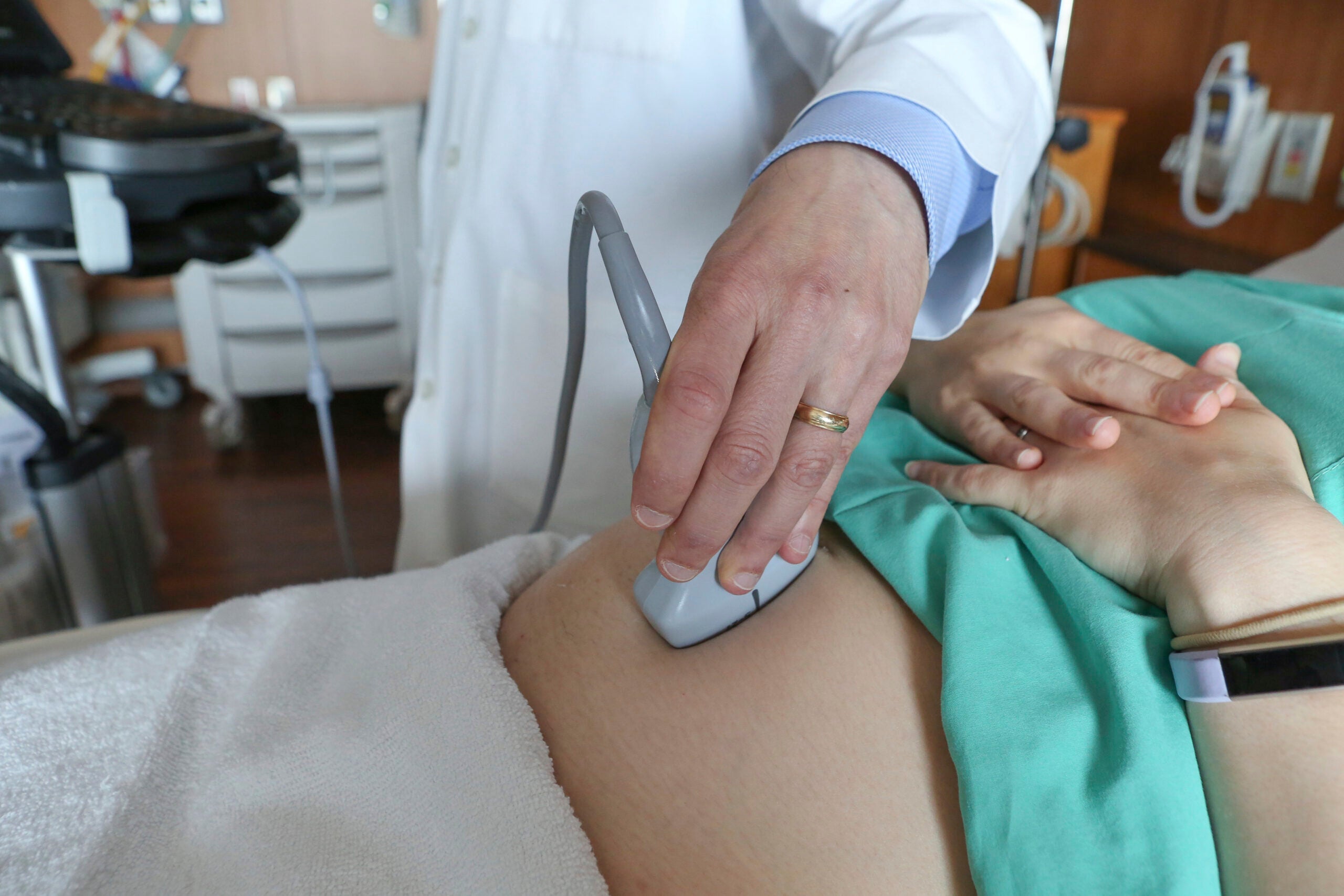With abortions no longer taking place in Wisconsin, providers in neighboring states are preparing for an influx of out-of-state patients seeking abortion care after the U.S. Supreme Court overturned Roe v. Wade on Friday.
Wisconsin’s 173-year-old abortion ban is now in effect, making abortions illegal unless the procedure is necessary to save a patient’s life. Abortion remains legal in Illinois and Minnesota. While the procedure is still legal in Michigan, where it will stand there in the coming months is uncertain.
Planned Parenthood of Illinois Action is expecting an influx of 20,000 to 30,000 or more people each year coming to the state in search of abortions from surrounding states, including Wisconsin.
News with a little more humanity
WPR’s “Wisconsin Today” newsletter keeps you connected to the state you love without feeling overwhelmed. No paywall. No agenda. No corporate filter.
In the past several days, the organization has already helped patients from Wisconsin reschedule appointments in Illinois — including at a clinic in Waukegan, about a dozen miles from the Wisconsin border.
“We had already seen a fairly high number of Wisconsin patients in Waukegan historically,” said Kristen Schultz, the organization’s chief strategy and operations officer. “Now, in the next couple of days, the majority of the patients on our abortion schedule are from Wisconsin.”
Schultz declined to provide figures on the number of Wisconsin patients seeking care. The Associated Press reported Friday that nearly 70 abortion procedures with Planned Parenthood of Wisconsin had to be canceled over the weekend.
About 6,400 abortions took place in Wisconsin in 2020, according to the most recent state data.
For many Wisconsin residents, Schultz noted Illinois will become their closest provider.
“We estimate that there may be several thousand patients from Wisconsin over the next year that will travel to Illinois for care,” Schultz said.
The organization has been taking steps in recent years to expand staffing, provide telehealth access to abortion services, and invest in facilities like the Waukegan clinic to meet demand.
Chicago’s Mayor Lori Lightfoot announced in May that the city would spend around $500,000 on transportation, lodging, and other expenses to help residents in neighboring states obtain abortions, according to the Chicago Tribune.
On Friday, Illinois Gov. J.B. Pritzker said he would be calling a special session in the weeks to come “to more firmly protect women’s reproductive rights” in the state.
In Michigan, access to abortions could change. Like Wisconsin, a 1931 law in the state only allows abortions to preserve a patient’s life, but a temporary injunction issued in May blocks enforcement of the 91-year-old statute, according to the Detroit Free Press. Democratic Gov. Gretchen Whitmer, who is up for reelection in November, said she will “fight like hell” to protect residents’ rights to make decisions about their own bodies.
On Saturday, Gov. Tony Evers, who is also running for reelection, said he would offer clemency to doctors who perform abortions in Wisconsin, and Attorney General Josh Kaul said he would not use state Department of Justice resources to investigate or prosecute anyone violating the state ban.
Also Saturday, Minnesota Gov. Tim Walz issued an executive order to protect out-of-state residents who are seeking, providing, or obtaining abortions in Minnesota. The order bars state agencies from providing any time, information or resources that would be used to help investigate or prosecute those seeking access to abortions in Minnesota, except under a court order or other Minnesota and federal laws.
Minnesota could see as high as a 371 percent increase in patients from nearby states, according to Asha Hassan, a graduate researcher at the Center for Antiracism Research for Health Equity at the University of Minnesota.
Hassan highlighted the disproportionate impact of abortion bans on lower-income patients and communities of color due to a mix of factors, including a lack of health care, transportation, or time off from work. The SCOTUS ruling also comes at a time when the nation is facing a maternal mortality crisis, Hassan said.
“Wisconsin is one of the worst states for maternal mortality,” Hassan said. “When we look at the statistics, abortion is significantly safer as a procedure than to give birth. If we look at the math and think about the number of people who will now be forced to give birth and carry out a pregnancy, who would have otherwise had an abortion, there will be an increase in maternal mortality.”
State data shows maternal mortality in Wisconsin was five times higher for Black women than their white counterparts from 2006 to 2010. The state also had the highest infant mortality rate in the nation among Black women from 2013 to 2015, according to the Centers for Disease Control and Prevention.
One recent study estimated infant mortality could grow 21 percent for all patients nationwide and up to 33 percent for Black women.
Jenny Higgins, a professor and director of the Collaborative for Reproductive Equity at the University of Wisconsin-Madison, said their research has also shown an increase in birth rates in Wisconsin in recent years due to abortion clinic closures. Higgins said Wisconsin’s abortion ban will have devastating impacts on people’s health and wellbeing in Wisconsin.
“Either people will travel out of state to get abortion care in Illinois and Minnesota, for example, which will take significant time, money and logistical resources,” said Higgins. “Some people will self-manage their abortions here in Wisconsin … and then, of course, some people will not be able to access abortion care at all.”
In Duluth, WE Health Clinic has already begun booking appointments for people seeking abortions from out-of-state patients, including Texas and South Dakota. The clinic provided abortions to 87 patients from Wisconsin in 2021. That’s about 19 percent of the 462 procedures conducted last year.
The clinic’s executive director, Laurie Casey, said the clinic has already provided 50 more abortions than the same time last year with 284 procedures conducted as of June 16.
“We do see people from Wisconsin regularly, from northern Wisconsin,” Casey said. “But I think we’re starting to see people coming from mid- to southern Wisconsin, too.”
It’s uncertain how many people from outside the state may seek care at the clinic, but Casey said they’ve heard estimates of a 25 percent increase in out-of-state patients. Patients that would normally access services in the Twin Cities have been seeking appointments in Duluth due to an influx of out-of-state residents coming to Minnesota for care.
The clinic currently offers abortions one day a week. Casey said staff are preparing to ensure they have physicians available to provide the procedure, which could be offered another day each week. The clinic would also likely supplement its part-time staff of around a dozen employees with additional nursing and front desk staff along with patient educators and escorts.
In September, the Duluth clinic also began virtually offering medication abortions, or abortions induced by pills, to people in Minnesota, Casey said. She said patients who utilize the telehealth service still must be in Minnesota while conducting virtual consults, and they must have a Minnesota mailing address to receive the abortion pill.
Even so, people living in border communities like Superior would be able to make the trip to Duluth for their consult and medication.
Wisconsin Public Radio, © Copyright 2025, Board of Regents of the University of Wisconsin System and Wisconsin Educational Communications Board.







